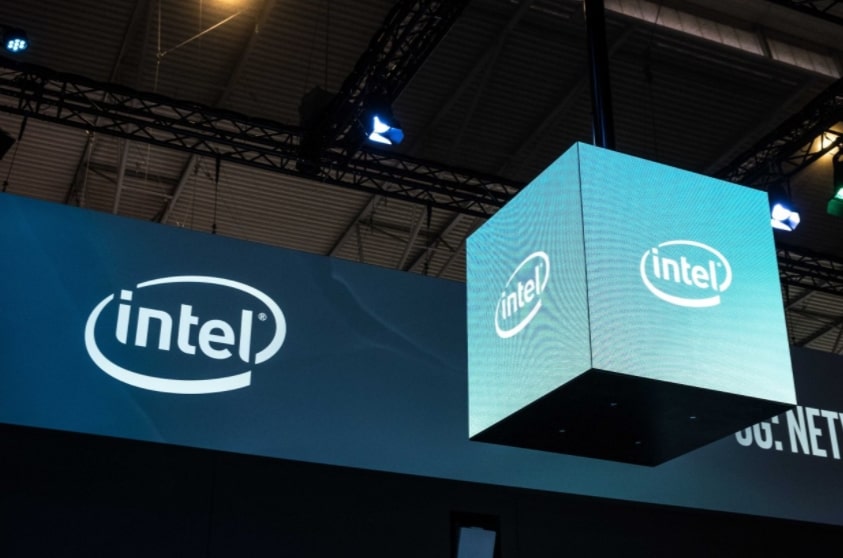
Intel Corp. INTC 2.86% is considering a range of acquisition alternatives in reaction to Broadcom Ltd.’s AVGO 2.77% hostile pursuit for Qualcomm Inc. QCOM 1.96% that could include a bid for Broadcom, according to people familiar with the matter.
Intel is watching the takeover battle closely and is eager for Broadcom to fail as the combined company would pose a serious competitive threat, the people said. If it looks like Broadcom is likely to prevail, Intel could step in with its offer for Broadcom, the people said.
Intel has been considering such a move since late last year and is working with advisers, some of the people said. It is far from guaranteed that Intel would ultimately make such a move—one of the people said it is unlikely—and the complexity and size of such a combination would be enormous. Broadcom currently has a market value of about $104 billion.
It is also possible that Intel ultimately decides to make other, smaller acquisitions one of the people said.
The news of Intel’s review adds a new twist to a takeover drama that has been unfolding since late last year. Broadcom has waged a monthslong hostile fight to take over Qualcomm, which would dramatically reshape the semiconductor industry and have major ramifications for other players such as Intel.
It would also show the potential a Broadcom-Qualcomm tie-up has to turn the semiconductor industry upside down.
Intel and Qualcomm are fierce rivals and Intel has been working to chip away at Qualcomm’s strong position in making equipment for wireless devices, namely those from Apple Inc. Qualcomm and Apple have been in a bitter dispute and should Broadcom succeed in buying Qualcomm, it could smooth over relations with Apple, closing a door to further possible gains from Intel.
It would be Intel’s biggest acquisition by far—and should it pursue one, there’s no guarantee regulators would bless it. Intel, based in Santa Clara, Calif., and with a market value of nearly $240 billion, has been acquisitive in recent years as it looks to diversify away from its core business of powering the personal-computer industry, which is in decline.
Last year, Intel bought Israeli car-camera pioneer Mobileye NV for roughly $15.3 billion in a bet on connected cars. In 2015, it struck its largest deal ever when it bought Altera Corp. for $16.7 billion. Intel hoped that buying Altera would help bolster its position in server systems and other equipment found in corporate data centers, the company said at the time, as well as fuel its plans surrounding the so-called Internet of Things.
In the most recent piece of drama surrounding Broadcom’s bid to buy Qualcomm, the effort was dealt a setback when the Committee on Foreign Investment in the U.S., or CFIUS, indicated it has concerns about the takeover and would review it.
That appeared to lengthen the odds that Broadcom and its chief executive, Hock Tan, would succeed in their pursuit of Qualcomm, which has rejected the $117 billion offer as too low.
Separately, Qualcomm has in place its own pending $44 billion deal to buy NXP Semiconductors NV, which it sweetened in February, a move Broadcom criticized.
Should Broadcom’s bid for Qualcomm founder, it is possible Intel would stand down, happy with the status quo.
Broadcom has been seeking to replace a majority of Qualcomm’s board members to help pave the way for a deal. A vote on the directors that was slated to take place this past Tuesday at Qualcomm’s annual meeting was pushed back a month at CFIUS‘s behest.
Broadcom sells a diverse line of equipment for networking and communications—including technology for smartphones from Apple and Samsung Electronics Co. —as well as data storage, electronic displays and set-top boxes. Broadcom is a so-called fabless chip company, designing processors while relying on manufacturers such as Taiwan Semiconductor Manufacturing Co. to actually make them.
Under Mr. Tan, Broadcom has pursued a string of acquisitions.
The company was formed when Avago Technologies Ltd. in 2015 agreed to buy the former Broadcom for roughly $37 billion and kept its name. Broadcom’s revenue was twice the size of Avago’s at the time of the merger.
